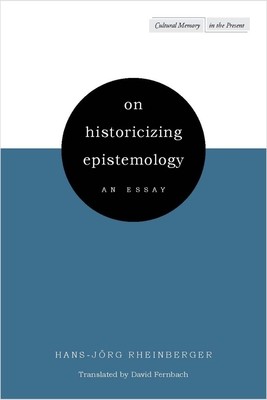
- We will send in 10–14 business days.
- Author: Hans-Jörg Rheinberger
- Publisher: Stanford University Press
- ISBN-10: 0804762880
- ISBN-13: 9780804762885
- Format: 15.5 x 22.9 x 1.5 cm, kieti viršeliai
- Language: English
- SAVE -10% with code: EXTRA
Reviews
Description
Epistemology, as generally understood by philosophers of science, is rather remote from the history of science and from historical concerns in general. Rheinberger shows that, from the late nineteenth through the late twentieth century, a parallel, alternative discourse sought to come to terms with the rather fundamental experience of the thoroughgoing scientific changes brought on by the revolution in physics. Philosophers of science and historians of science alike contributed their share to what this essay describes as an ongoing quest to historicize epistemology. Historical epistemology, in this sense, is not so concerned with the knowing subject and its mental capacities. Rather, it envisages science as an ongoing cultural endeavor and tries to assess the conditions under which the sciences in all their diversity take shape and change over time.
EXTRA 10 % discount with code: EXTRA
The promotion ends in 22d.07:09:23
The discount code is valid when purchasing from 10 €. Discounts do not stack.
- Author: Hans-Jörg Rheinberger
- Publisher: Stanford University Press
- ISBN-10: 0804762880
- ISBN-13: 9780804762885
- Format: 15.5 x 22.9 x 1.5 cm, kieti viršeliai
- Language: English English
Epistemology, as generally understood by philosophers of science, is rather remote from the history of science and from historical concerns in general. Rheinberger shows that, from the late nineteenth through the late twentieth century, a parallel, alternative discourse sought to come to terms with the rather fundamental experience of the thoroughgoing scientific changes brought on by the revolution in physics. Philosophers of science and historians of science alike contributed their share to what this essay describes as an ongoing quest to historicize epistemology. Historical epistemology, in this sense, is not so concerned with the knowing subject and its mental capacities. Rather, it envisages science as an ongoing cultural endeavor and tries to assess the conditions under which the sciences in all their diversity take shape and change over time.


Reviews